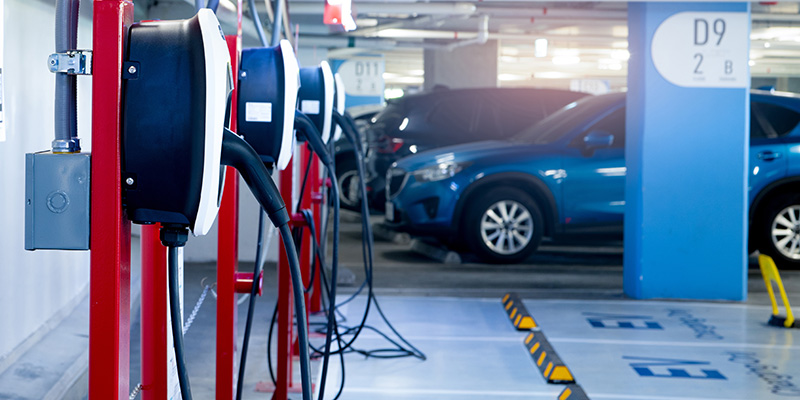Senate Bill 40: What Is the Electric Vehicle Charging Act?

Senate Bill 40 makes it a requirement for newly built homes to install EV-capable infrastructure. Gov. J.B. Pritzker, who is a huge advocate for clean energy, is scheduled to sign it.
Browse By Category
Sign up for Our Newsletter
Senate Bill 40 makes it a requirement for newly built homes to install EV-capable infrastructure. Gov. J.B. Pritzker, who is a huge advocate for clean energy, is scheduled to sign it.
What Is Senate Bill 40?
The Illinois Legislature recently passed Senate Bill 40, known as the “Electric Vehicle Charging Act,” and is now waiting on Gov. J.B. Pritzker’s signature. This new law would require all newly constructed single-family or small multifamily homes with dedicated parking to provide the infrastructure needed to support at least one EV-capable parking space for each residential unit.
For a large multifamily residential building, the bill requires “100% of its total parking spaces” to be ready for EV charging.
State Sen. Sara Feigenholtz, who acted as the chief sponsor of the bill, believes that the bill will help support the future of vehicles. It essentially aims to future-proof homes in the state as the population continues to shift to electric vehicles.
However, not everyone agrees with Feigenholtz. Rep. Travis Weaver is one. Weaver believes that the bill would unnecessarily make it more expensive to build new homes, negatively affecting those who don’t own EVs.
The cost for developers to install the wiring, though, would be minimal. It is also cheaper to install EV-capable infrastructure during construction than post-construction.
The Move to Electric Vehicles in Illinois
It is no secret that Pritzker strongly supports clean energy. In 2021, he signed a bill that sought to raise the production of electric vehicles. His goal is to have 1 million EVs in Illinois by the year 2030.
Currently, there are only 68,000 registered electric cars in the state. A large majority of those registered EVs are located in the Cook, DuPage, and Lake counties.
While the bill is a step in the right direction, it does not include requirements for government and private buildings. It only places the requirement on residential buildings and affordable housing. For residential buildings, the new law will take effect shortly after signing. However, it will only take effect two years later for affordable housing.
What Does This Mean for Homeowners Associations?
Senate Bill 40 primarily focuses on newly constructed residential buildings. However, homeowners and renters of existing buildings can request to install the charging infrastructure if they shoulder the construction cost. Homeowners associations must comply with such requests or else face a potential fine of as much as $1,000.
Trending Now
Related Article
Sign up for Our Monthly Newsletter
Sign up below for monthly updates on all HOA Resource

















